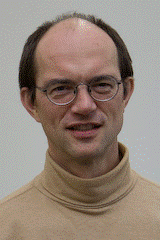报告题目 Title: Model Confidence Sets for Lag Selection in Autoregressive Models
报告人 Speaker:Prof. Rolf Tshcernig, University of Regensburg, Germany
讲座时间 Time: 2015年7月9日(周四)上午 9:00-10:00
讲座地点 Place: 苏州大学本部维格堂113
报告简介 Abstract: We investigate the performance of the model confidence set (MCS) procedure proposed by Hansen, Lunde, and Nason (2011, Econometrica) for linear univariate time series modeling. Among other things, applying the MCS algorithm requires to choose a loss function and an equivalence test. For the equivalence test we apply the T-max and the T-range statistic suggested in the literature and investigate the T-min statistic. We propose a loss function that averages over losses resulting from various multi-step-ahead forecasts.
We generate time series from simple AR(3) processes and take as initial model set AR models up to order eight, including 246 subset models. For each model contained in the model confidence set impulse responses and forecasts are computed and then averaged across models for each horizon. This procedure is compared to calculations based on single models selected by AIC, HQ, and SC, respectively.
Our results indicate that the MCS-based forecasting can be substantially better than AIC/HQ/SC-based forecasting when the newly proposed loss function based on averaging multi-step-ahead forecasting losses is used and the signal-to-noise ratio of the data generating process is large. On the other hand, we have not found an advantage of the MCS-based procedure over traditional lag selection for impulse response modeling.
We investigate the size and power of the MCS and find that the MCS procedure can have very low power. However, we find that the mean squared error of prediction (MSEP) of models in the MCS is typically only slightly larger than the MSEP of the true model. We define a set of practically superior models that also includes those models with marginally larger MSEP. The MCS procedure identifies this set of practically superior models very well if the signal-to-noise ratio and the sample size are sufficiently large. (Joint work with Niels Aka, DIW Berlin)

About the Speaker: Rolf Tschernig is Chair Professor of Econometrics, University of Regensburg. His research interests include Time aeries, Long memory, and Nonparametric models, and has published articles in top journals such as Journal of the Royal Statistical Society B, Journal of Econometrics, Journal of Business and Economic Statistics.
